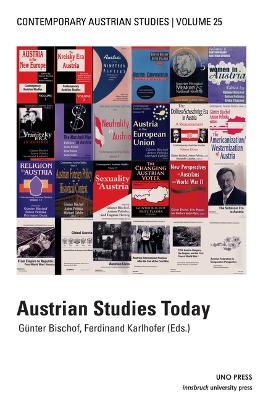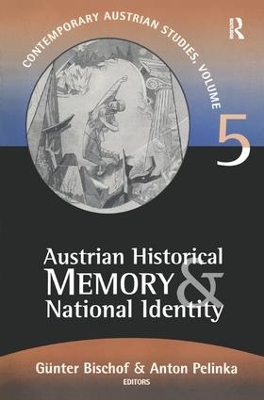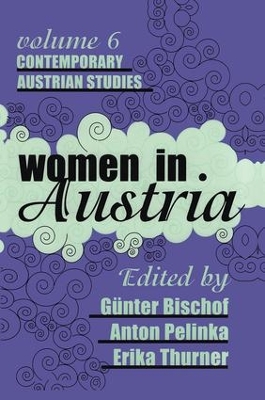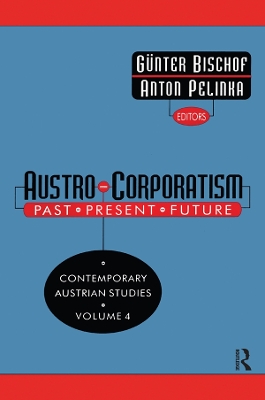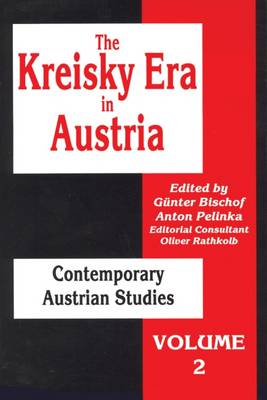Contemporary Austrian Studies
1 primary work • 5 total works
Book 25
Austrian Studies Today
by Rupnow Dirk, Gunter Bischof, and Ferdinand Karlhofer
When the Hapsburg monarchy disintegrated after World War I, Austria was not considered to be a viable entity. In a vacuum of national identity the hapless country drifted toward a larger Germany. After World War II, Austrian elites constructed a new identity based on being a "victim" of Nazi Germany. Cold war Austria, however, envisioned herself as a neutral "island of the blessed" between and separate from both superpower blocs. Now, with her membership in the European Union secured, Austria is reconstructing her painful historical memory and national identity. In 1996 she celebrates her 1000-year anniversary.
In this volume of Contemporary Austrian Studies, Franz Mathis and Brigitte Mazohl-Wallnig argue that regional identities in Austria have deeper historical roots than the many artificial and ineffective attempts to construct a national identity. Heidemarie Uhl, Anton Pelinka, and Brigitte Bailer discuss the post-World War II construction of the victim mythology. Robert Herzstein analyses the crucial impact of the 1986 Waldheim election imploding Austria's comforting historical memory as a "nation of victims." Wolfram Kaiser shows Austria's difficult adjustments to the European Union and the larger challenges of constructing a new "European identity." Chad Berry's analysis of American World War II memory establishes a useful counterpoint to construction of historical memory in a different national context.
A special forum on Austrian intelligence studies presents a fascinating reconstruction by Timothy Naftali of the investigation by Anglo-American counterintelligence into the retreat of Hitler's troops into the Alps during World War II. Rudiger Overmans' "research note" presents statistics on lower death rates of Austrian soldiers in the German army. Review essays by Gunther Kronenbitter and Gunter Bischof, book reviews, and a 1995 survey of Austrian politics round out the volume. Austrian Historical Memory and National Identity will be of intense interest to foreign policy analysts, historians, and scholars concerned with the unique elements of identity and nationality in Central European politics.
Corporatism was unpopular in the Europe of the past decade. During a time of neo-conservative resurgence in both the United States and the United Kingdom, macroeconomic steering and statist centralism and regulation were in disfavor. However, Austria's unique Sozialpartnerschaft, its famed system of tripartite informal and formal labor, business, and state cooperation, continued to prosper In spite of such powerful Anglo-American trends. Austro-Corporatism is the fourth volume in the interdisciplinary Contemporary Austrian Studies series. This effort in particular reflects the uniqueness of Austrian corporatism, and looks at its deep historical roots from a comparative continental European perspective.The contributors Include specialists on Austria from all parts of the world, making this a truly international effort. Andrei Markovits provides the larger European context for this analysis of Austrian corporatism. Emmerich Talos and Bernhard Kittel review the historical development of Austrian corporatism, going back to its nineteenth-century roots. Randall Kindley studies the Institutional framework of Austrian corporatism, particularly its post-World War II reincarnation. Hans Seidel looks at the subject from a neo-Keynesian economic perspective, and Ferdinand Karlhofer at the chances of Its survival in a changing international environment.Jonathan Petropoulos presents a fascinating biographical study of Nazi art plunderer Kajetan Muhlmann, and David McIntosh compares Eisenhower's policy vis-a-vis the small friendly countries of Lebanon, Costa Rica, and Austria. A special forum looks at the model character and appeal of tripartite Austrian cooperation among its new eastern democratic neighbors: the Czech Republic, Slovakia, Hungary, and Slovenia. A number of reviews of Austrian politics in 1994 complete the volume. Austro-Corporattsm will be of intense interest to foreign policy analysts, historians, and scholars concerned with the unique elements in Central European politics.
